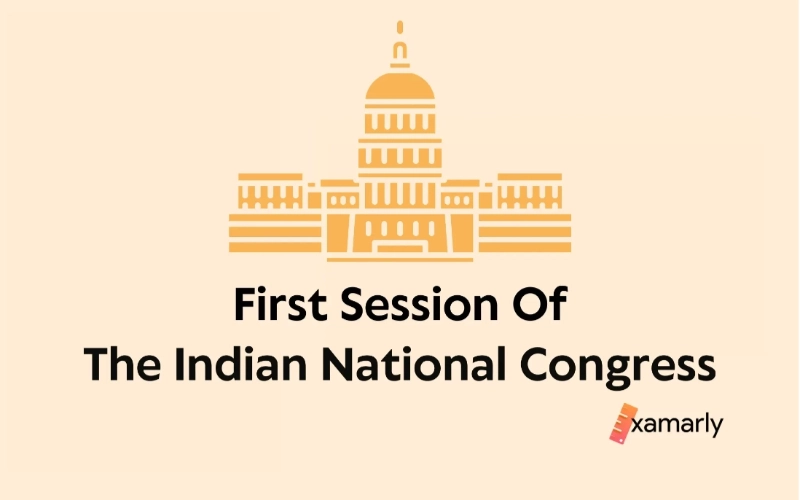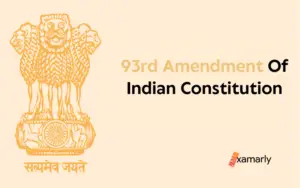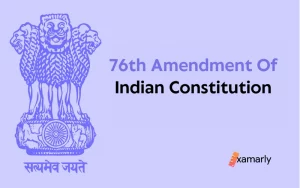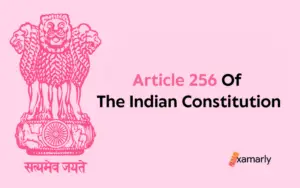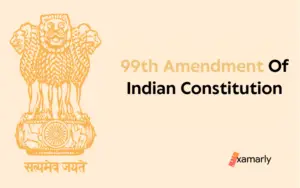With the opening of the first session of Indian National Congress (INC), the country’s future was being shaped. The first session of Congress was held in 1885. The British Indian Association, created by Allan Octavian Hume, had been lobbying for such a body. It is widely seen as the session that brought into being a nationwide nationalist movement.
This topic has been covered in both the preliminary and main stages of the UPSC exam pattern.
Features of the First Session of the INC
The first Indian National Congress session was organized by Allan Octavian Hume, a British official who believed that the creation of a political outfit would channel the discontent of the Indian people. Historians have challenged this theory and have stated that many forces were at play in the emergence of Congress. Here are some of the key features of the first session of the Indian National Congress:
- The first meeting of the Indian National Congress was hosted from December 28 to December 31, 1885, by Gokuldas Tejpal Sanskrit College in Bombay.
- Though Poona was the original location, it was later moved to Bombay due to a plague outbreak in Poona.
- 72 delegates from all over the country attended the first session.
- None of the delegates were women. Most of them were from the background of Lawyers.
- A well-known lawyer from Calcutta named Womesh Chandra Bonnerjee served as the first president of the INC session.
- A.O. Hume was selected as a General Secretary.
- Some delegates were: Womesh Chandra Bonnerjee, Badruddin Tyyabji, Romesh Chunder Dutt, Dadabhai Naoroji, S Ramaswami Mudaliar, Pherozeshah Mehta, S. Subramania Iyer, and Surendranath Banerjee with other prominent leaders.
- One of the founding members of INC was a British civil servant and an Englishmen A.O. Hume.
- Apart from A.O. Hume, Justice John Jardine, and William Wedderburn are the other two Britishers who were the founding members of INC.
- There were mostly Hindus and they are from Bombay and Madras.
Note: Several sessions were conducted across India at the year-end which was defined as a “memorandum” to submit the Indian political stance to the British government. The memorandum was therefore shared at each meeting.
Indian National Congress: Aims And Objectives
- INC aimed to promote a national identity amongst the Indian people and to foster the feeling of national unity. The colonial administrators and ideologues argued that Indians could not be emancipated or untied since they were not a country. Rather, they were considered a geographical manifestation.
- A rule that prohibited the adoption of resolutions without a significant majority of Muslim or Hindu delegates objecting was created at the 1888 session. This was done in an effort to be inclusive and soothe all religions and minorities.
- When he served as President of the First Session of Congress, W.C. Bonnerjee stated that one of the goals of the Congress was to “eradicate all possible race, creed, or provincial prejudices among all lovers of our country.”
- The Congress’s next major aim was to achieve a standardized platform around which political activists from across the country could congregate and perform their political operations, teaching and mobilizing people across the country.
- In its second session, the Congress’s president, Dadabhai Naoroji, set a new rule. It stated that the National Congress shall limit itself to topics in which the entire nation is directly involved.
Resolutions Passed In The First Session Of INC
In the first session of the Indian National Congress, nine resolutions were considered, discussed, and laid down. They are:
- Local and imperial legislative councils saw new scopes opening up due to the Indian Councils Act of 1861. They were granted increased responsibilities and their expansion and reform were created.
- It demands the creation of the royal commission to look into India’s governance.
- To address official concerns, the House of Commons has established a Standing Committee and legislative councils for the Northwest Province, Oudh, and Punjab.
- The Government plans to hold simultaneous Public Service Examinations in England and India, as well as to raise the minimum age for eligibility to apply for these examinations.
- There should be an end to the Indian Council of Secretary of State for India.
- Spending on the military should be cut.
- Protests against the invasion of Upper Burma and the proposed fusion with India.
- All of the resolutions were to be delivered to political organizations all over the country for discussion and the formation of views.
- The next meeting of the Congress was set for December 28, 1886, in Calcutta.
List Of Sessions Of Indian National Congress Before Independence (1885-1947)
| Year | Location | President |
| 1885 | Bombay | W C Bonnerjee |
| 1886 | Calcutta | Dadabhai Naoroji |
| 1887 | Madras | Syed Badruddin Tyabji (first Muslim President) |
| 1888 | Allahabad | George Yule (first English President) |
| 1889 | Bombay | Sir William Wedderburn |
| 1890 | Calcutta | Feroz Shah Mehta |
| 1891 | Nagpur | P. Ananda Charlu |
| 1892 | Allahabad | W C Bonnerjee |
| 1893 | Lahore | Dadabhai Naoroji |
| 1894 | Madras | Alfred Webb |
| 1895 | Poona | Surendranath Banerjee |
| 1896 | Calcutta | Rahimtullah M. Sayani |
| 1897 | Amravati | C. Sankaran Nair |
| 1898 | Madras | Ananda Mohan Bose |
| 1899 | Lucknow | Romesh Chandra Dutt |
| 1900 | Lahore | N G Chandavarkar |
| 1901 | Calcutta | Dinshaw E. Wacha |
| 1902 | Ahmedabad | Surendranath Banerjee |
| 1903 | Madras | Lal Mohan Ghosh |
| 1904 | Bombay | Sir Henry Cotton |
| 1905 | Benares | Gopal Krishna Gokhale |
| 1906 | Calcutta | Dadabhai Naoroji |
| 1907 | Surat | Rash Behari Ghosh |
| 1908 | Madras | Rash Behari Ghosh |
| 1909 | Lahore | Madan Mohan Malaviya |
| 1910 | Allahabad | Sir William Wedderburn |
| 1911 | Calcutta | Bishan Narayan Dhar |
| 1912 | Bankipore (Patna) | Raghunath Narasinha Mudholkar |
| 1913 | Karachi | Syed Mohammed |
| 1914 | Madras | Bhupendra Nath Basu |
| 1915 | Bombay | Satyendra Prasanna Sinha |
| 1916 | Lucknow | Ambica Charan Mazumdar (Re-union of the Congress- Joint session with Muslim League) |
| 1917 | Calcutta | Annie Besant (first woman President) |
| 1918 | Bombay And Delhi | Syed Hasan Imam (Bombay) And Madan Mohan Malaviya (Delhi) |
| 1919 | Amritsar | Motilal Nehru |
| 1920 | Nagpur | C Vijayaraghavachariar |
| 1921 | Ahmedabad | Hakim Ajmal Khan (acting President For C R Das) |
| 1922 | Gaya | C R Das |
| 1923 | Kakinada | Maulana Mohammad Ali |
| 1924 | Belgaum | M.K. Gandhi |
| 1925 | Kanpur | Sarojini Naidu (first Indian woman President) |
| 1926 | Guwahati | S Srinivasa Iyengar |
| 1927 | Madras | M A Ansari |
| 1928 | Calcutta | Motilal Nehru (first All India Youth Congress Formed) |
| 1929 | Lahore | Jawaharlal Nehru (Poorna Swaraj (Complete Independence) Resolution was passed) |
| 1930 | No Session | – |
| 1931 | Karachi | Vallabhbhai Patel (Here, the resolution on Fundamental Rights and the National Economic Program was passed) |
| 1932 | Delhi | Amrit Ranchhorddas Seth |
| 1933 | Calcutta | Malaviya Was Elected But Mrs. Nellie Sengupta Presided |
| 1934 | Bombay | Rajendra Prasad |
| 1937 | Lucknow | Jawaharlal Nehru (first session in a village) |
| 1936 | Faizpur | Jawaharlal Nehru |
| 1938 | Haripura | Subhas Chandra Bose (a National Planning Committed set-up under Jawaharlal Nehru). |
| 1939 | Tripuri | Subhash Chandra Bose |
| 1940 | Ramgarh | Abul Kalam Azad |
| 1941-45 | – | – |
| 1946 | Meerut | Acharya Kripalani |
Conclusion
The Indian National Congress had many Indian leaders and delegates from all parts of India. The party launched with its earliest ambition to bring about social and political reform.
The Nationalists’ agenda for the first session included the establishment of Legislative Councils in the Northwest Province and a Standing Committee in the Parliament to consider formal protests. This session was marked by many political and social changes.
We hope this blog helped you with some closer insights into the rise of the Indian National Congress, its history, and key objectives that will help you with your UPSC preparation strategy.
FAQ On First Session Of Congress
Who claimed that the Indian National Congress only speaks for insignificant minorities?
Lord Dufferin claimed that the Indian National congress only speaks for insignificant minorities.
Who was not present at the first session of Congress?
Surendranath Banerjee was unable to join the same.
Where was the first session of the Indian national congress held?
The first session of the Indian National Congress was held at Gokuldas Tejpal Sanskrit Pathshala in Bombay.


